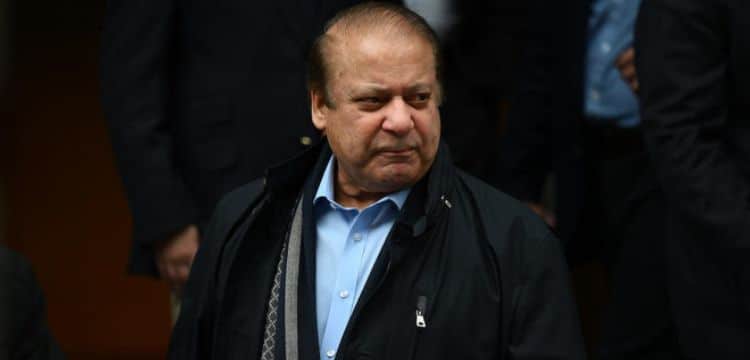[vc_row][vc_column][vc_column_text dp_text_size=”size-4″]In a significant development benefiting the PML-N, the Islamabad High Court (IHC) rendered a verdict on Tuesday, acquitting PML-N Supremo Nawaz Sharif in the Al-Azizia reference.
The two-judge bench, comprising IHC Chief Justice Aamer Farooq and Justice Miangul Hassan Aurangzeb, delivered the reserved verdict during the hearing of Nawaz’s appeal against his conviction in the Al-Azizia reference.
This follows the same bench’s acquittal of the PML-N leader in the Avenfield reference on November 29. The Al-Azizia Steel Mills corruption reference had led to a seven-year jail sentence, along with a fine of Rs1.5 billion and US$25 million, issued on December 24, 2018.
Also Read: Is Nawaz Closer To Securing Premiership Position?
The reference revolves around the inability of the Sharifs to justify the source of funds for establishing Al-Azizia Steel Mills and Hill Metal Establishment (HME) in Saudi Arabia.
Nawaz Sharif was declared a proclaimed offender in December 2020, subsequently leaving for London on medical grounds and returning to the country in October this year.
Upon his return, Nawaz filed applications seeking the restoration of appeals against his conviction. The IHC, on October 24, revived Nawaz’s appeals in the two references, asserting that the court would decide the appeal on its merits.
Also Read: Nawaz Sharif Declared Innocent in Avenfield Case As NAB Withdraws Charges
During the recent hearing, Nawaz, accompanied by senior PML-N leaders, including Ishaq Dar and Azam Nazeer Tarar, presented arguments through his lawyer, Amjad Pervaiz.
Pervaiz focused on challenging the prosecution’s case regarding Nawaz’s dependents, citing numerous legal precedents and emphasizing the absence of evidence proving Nawaz’s ownership of the assets in question.
In response, the NAB prosecutor defended the references, highlighting the formation of a joint investigation team (JIT) and underscoring the evidence collected, including statements from witnesses such as those from the Securities and Exchange Commission of Pakistan (SECP) and the Federal Board of Revenue (FBR).
The court pressed the NAB prosecutor for specific details and evidence, questioning the basis for transferring the burden of proof onto the accused. The proceedings underscored the nuanced legal arguments surrounding the case, emphasizing the need for a comprehensive examination of the evidence presented by both sides.[/vc_column_text][/vc_column][/vc_row]











